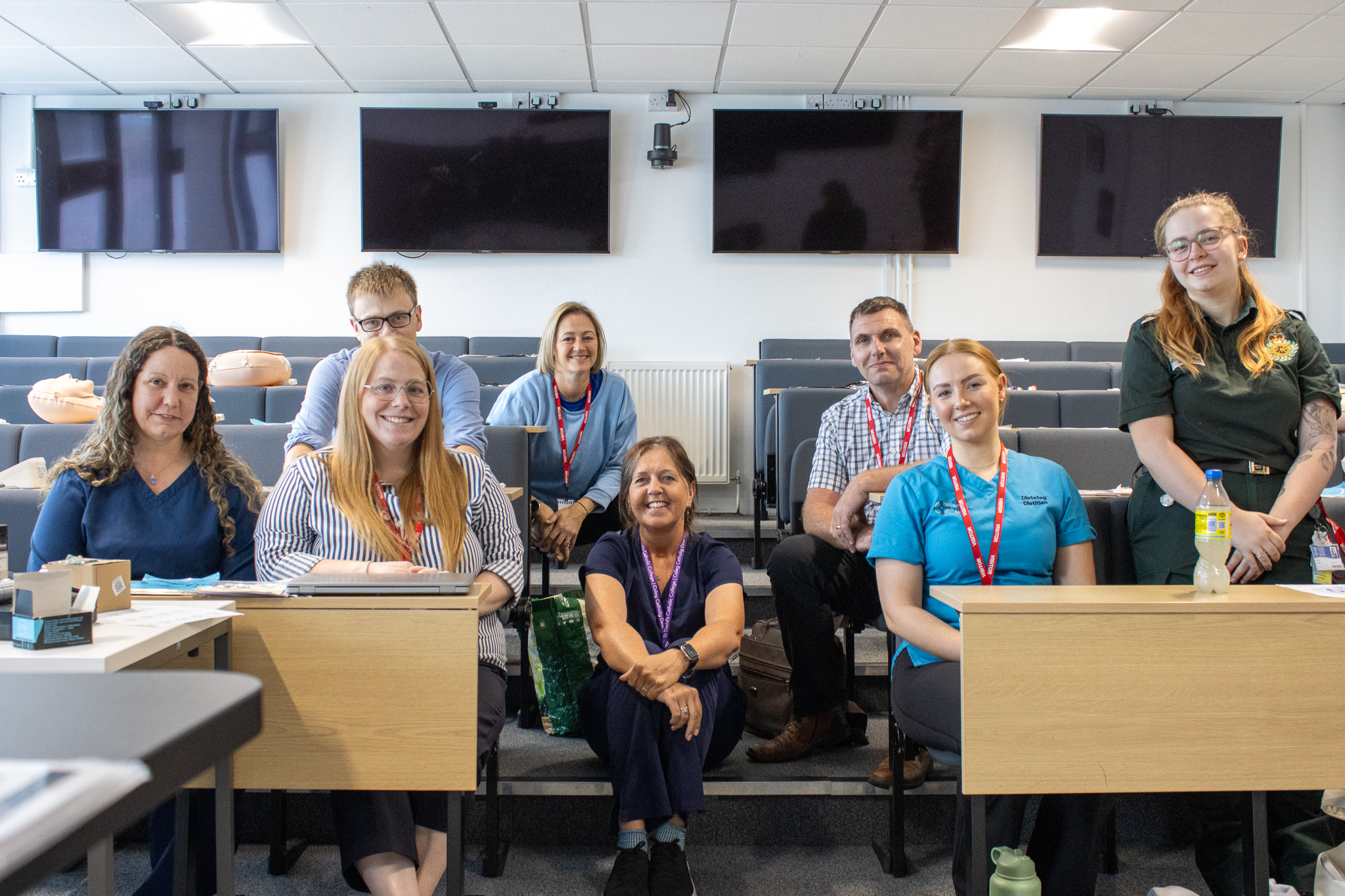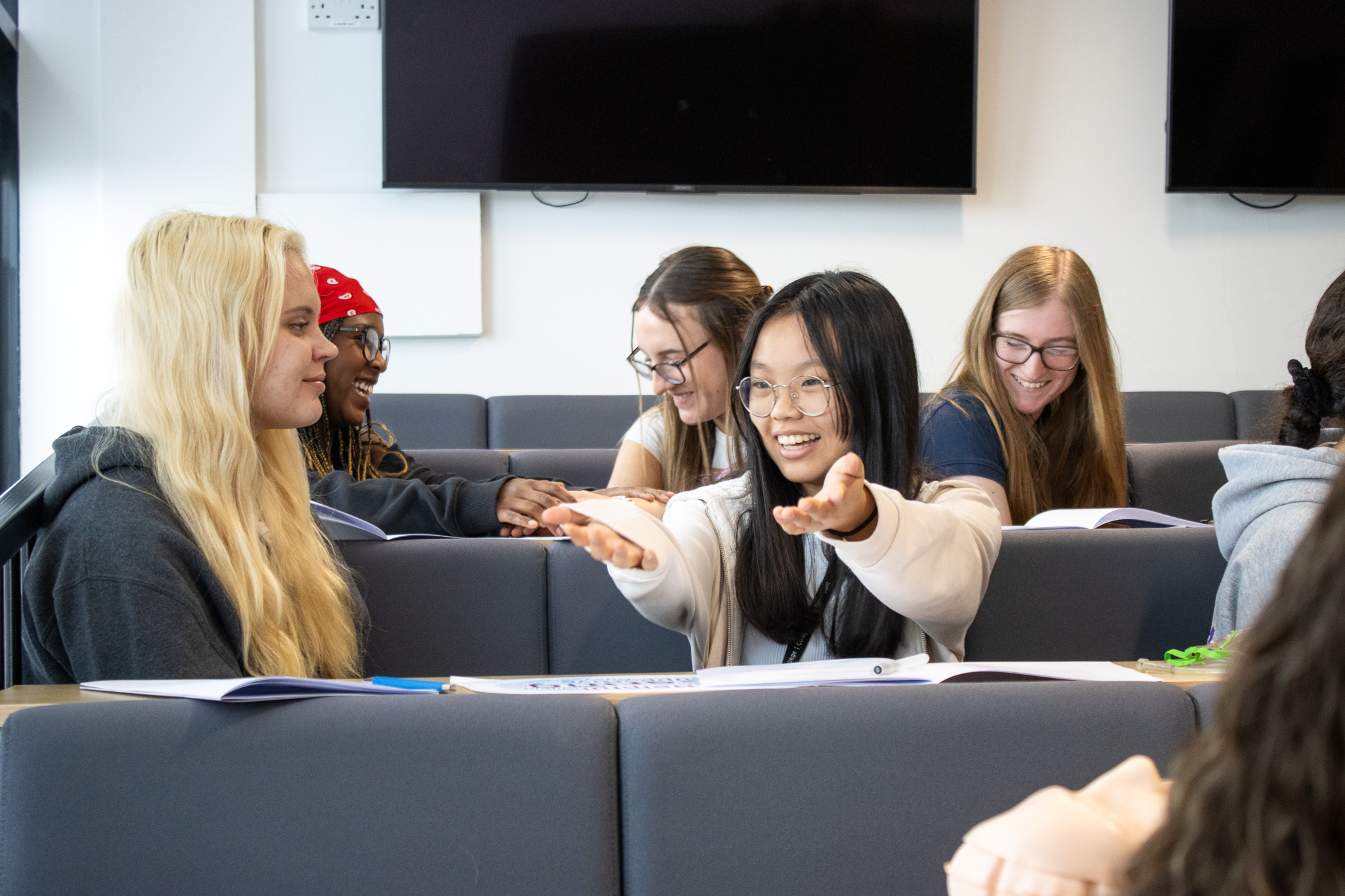

On June 4th and 11th, the College hosted its annual Patient Journey events showcasing NHS careers. The event provided an immersive educational experience designed to provide students with a comprehensive insight into the multifaceted world of healthcare.
This event, focusing on the journey of a stroke patient, brought together a diverse group of healthcare professionals. They shared their expertise and engaged students in practical, hands-on learning activities. In doing so, students learnt about the different careers available within the NHS. Emphasising the need for teamwork to deliver high-quality, holistic care to patients.
The Patient Journey events centred around a case study of ‘Doris’, a 68-year-old woman who experienced a stroke and required a coordinated response from various healthcare professionals. Contributors from different NHS sectors and broader healthcare fields demonstrated the collaborative effort needed to ensure Doris’s recovery over the two days, highlighting the roles of domiciliary care workers, paramedics, emergency medicine doctors, radiologists, biomedical scientists, dietitians, physiotherapists, and community care providers.
The days consisted of a series of sessions delivered by different healthcare providers. The event began with an overview of the case and introduction from Ceri Channon. Ceri Channon is a GP Practice Nurse at Highlight Park Medical Practice. Additionally, she is also St David’s Catholic College’s Progression Activities Coordinator. She supports budding healthcare professionals in preparing for application and interview processes.

Jason Sadler and Sophie Cleverly, a former student, from Swansea University provided an engaging session on paramedic science, followed by Dr Luke Morgan, another alumni of the College, who led a session on emergency medicine and radiology, complete with a clinical skills workshop that allowed students to practice undertaking physiological tests.
Another former student of St David’s, Ellis Eaves from the Welsh Blood Service continued the morning with insights into biomedical science, emphasising the importance of laboratory work in patient diagnosis and treatment.
The day’s schedule also included a session on dietetics by Meg Carpanini, a stroke rehabilitation dietitian, who discussed nutritional strategies to support recovery. Meanwhile, Sam Owen from PPP Physio provided an interactive session on physiotherapy, showcasing rehabilitation exercises and techniques crucial for patient mobility and independence.
Ceri Channon concluded the sessions with an exploration of primary (community) care, underlining the ongoing support patients receive once they leave the hospital. The event wrapped up with a reflective practice session, encouraging students to consider the holistic approach required in patient care.
One of the standout features of the event was the emphasis on practical, ‘have a go’ activities. Contributors involved students in role-playing scenarios, where they paired up to simulate the patient journey, assuming roles such as the patient and healthcare professionals. This hands-on approach allowed students to directly apply theoretical knowledge and better understand the patient experience. With approximately 75 students in attendance over the two days, the events were designed to be interactive and engaging. The participants expressed enthusiasm for the practical demonstrations and the opportunity to interact with professionals from various healthcare disciplines. The realistic case study and diverse range of sessions provided a well-rounded view of the patient journey, from initial care to rehabilitation and ongoing community support.
“Thank you to all contributors for their dedication and expertise, which made the event an enriching experience for all involved. As we reflect on the success of this event, we look forward to future opportunities to support students in preparing for successful futures after completing their Further Education studies”.
Olivia McLaren, Destinations Manager.
